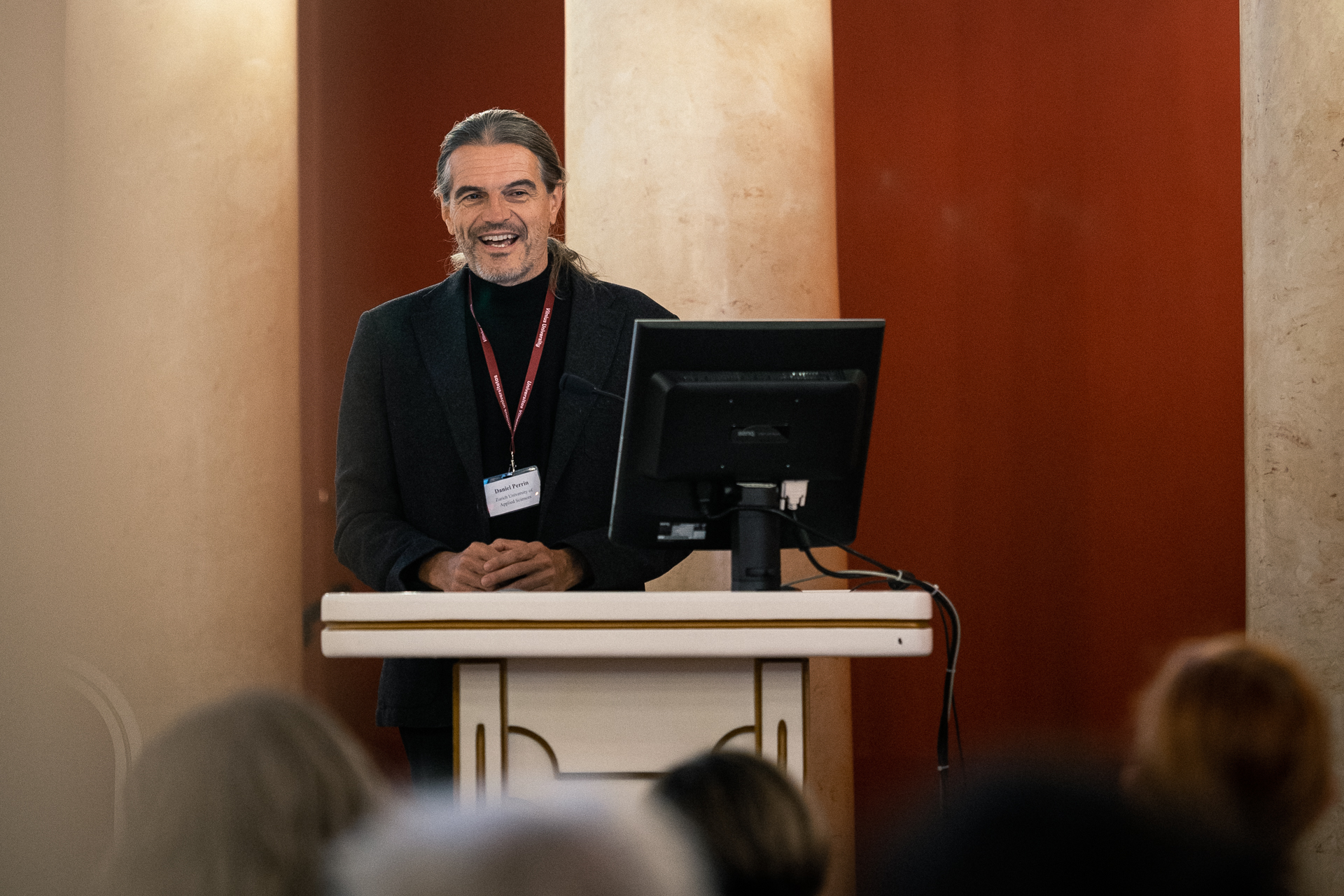Be Proud of What You Have

On 26-28 September 2019, the Faculty of Philology of Vilnius University hosted the fifth International Conference of Applied Linguistics “Languages and People: Communication in a Multilingual World”. The Conference was jointly organised by Faculty’s Institute of Applied Linguistics and the Lithuanian Association of Applied Linguistics (LITAKA).
The Conference was dedicated to the latest research of Lithuanian and foreign scholars in the areas of sociolinguistics, language policy, discourse analysis, translation, language teaching and learning, language acquisition and testing, corpus linguistics, psycholinguistics, pragmatics, and other areas of applied linguistics.
Prof. Dr. Daniel Perrin, the President of the International Association of Applied Linguistics (AILA), shared his thoughts on the importance of applied linguistics in our lives, the activities of associations, the fifth conference on applied linguistics in Lithuania, as well as Vilnius University.
What is the role of language? How would you describe applied linguistics to someone who is not familiar with it?
Language plays an important role in human life – it connects our hearts, minds, and societies. After all, we communicate through language. It is the primary mode of communication. In most circumstances, except in fights or very intimate situations, people interact not with the body but with language. Thus, language is a tool for our communication and at the same time a reflection of individual thinking, feelings and society. The language we use says a lot about our lives. That is why it is important to us to know how to communicate better, how to choose the right words, how to practice communication skills.
Applied linguistics plays an important role. It explains how people communicate and think in language, and, therefore, it helps to solve social problems. And there are many — ranging from healthcare (where physician-patient communication becomes a significant part of the treatment process) to political scenarios (where wars can be triggered or avoided by using the right words in diplomacy). Thus, applied linguistics investigates, identifies, and helps solve language-related problems.
Why is applied linguistics relevant to science?
Applied linguistics contributes primarily to an empirically grounded view of how languages work and are used. We can reveal the importance of communication, its influence on professional and everyday life. For example, it has been shown that articles from various scientific disciplines, such as physics, are cited more frequently when the article's message is effectively disseminated on social media. In this case, applied linguistics explores what is effective communication on social media.
Language research is important not only for applied linguistics but also for other scientific disciplines and society as a whole. After all, translation, as the process of getting as similar as possible a message across by using another code, is important to many scientific disciplines. Applied linguistics is particularly useful in inter- and transdisciplinary work. For example, physics, chemistry and mathematics professionals want to work together to solve endless problems such as radioactive waste. In order to do this, they have to discover a common language. This is where applied linguistics work becomes an important part of professional and academic life. We create new languages that help us communicate across the boundaries of different disciplines.
You are president of the International Association of Applied Linguistics. What is the purpose of this organization? What is the role of LITAKA?
AILA goal is to bring together thousands of applied linguists and 40 state associations from around the world. This organization gives researchers the opportunity to share their knowledge. They can do this at conferences, by joining the association's AILA research network, using the website or the association's mobile app. The International Association for Applied Linguistics helps you find people who are engaged in the same or similar complementary work, no matter where they are in the world.
LITAKA is known as a very active organization in the International Association of Applied Linguistics. When I joined the board of AILA in 2006, the former secretary of the association told me that there is a small association of applied linguistics in Lithuania that is particularly active. How right he was! Lithuania's role in this international organization is to be an example of how a small organization from a relatively small country can do so much good work in applied linguistics.
What is your impression of the fifth conference of Applied Linguistics organized by Vilnius University?
I attended this conference for the first time, but I had high expectations. Now I can say that all my expectations were met. I think this conference was highly interesting, its discussions were inspiring, the environment was pleasant, and the people gathered there were motivated.
Also, I was particularly impressed by the traditions and deep roots of Vilnius University, and at the same time the orientation of the conference towards present problems to solve and future challenges to master.
What message would you like to convey to the Vilnius University community?
My message is: be proud of what you have. In many places and respects, the world today has a superficial approach to knowledge and culture. The past usually means 50 or 100 years, and the past is even forgotten, neglected, or ignored. On the contrary, Vilnius University is explicitly and strongly rooted in the past. It draws on proven knowledge from the past centuries when looking toward the future, looking for new solutions, and being ready to face the world. By doing so, it can avoid re-inventing the wheel for the umpteenth time.
The knowledge you have must have been thoroughly tested by changing contexts. This means that your predictions about the future lead to wise decisions that have helped you survive and grow further. Otherwise, you would have disappeared, washed away by history. Still going strong after 440 years means that your key principles have constantly been a solid ground for decisions for the good of future generations.